Amateur musicians now have a digital band of AI assistants ready to help at every stage of music creation—from inspiration to final mastering. Whether you're struggling with writer's block, can't quite nail that perfect melody, or just want to experiment with new sounds, there's an AI tool that fits your needs.
In fact, there’s an overwhelming amount of tools for musicians and would-be musicians.
After reviewing dozens of AI music tools from our recent research, here are the best options for each stage of the song creation process.
Finding Your Muse
Sometimes all you need is some inspiration to start your creative journey. These tools will help you find new ideas, moods, tones, and even brand new references that might help you conceptualize your musical masterpiece.
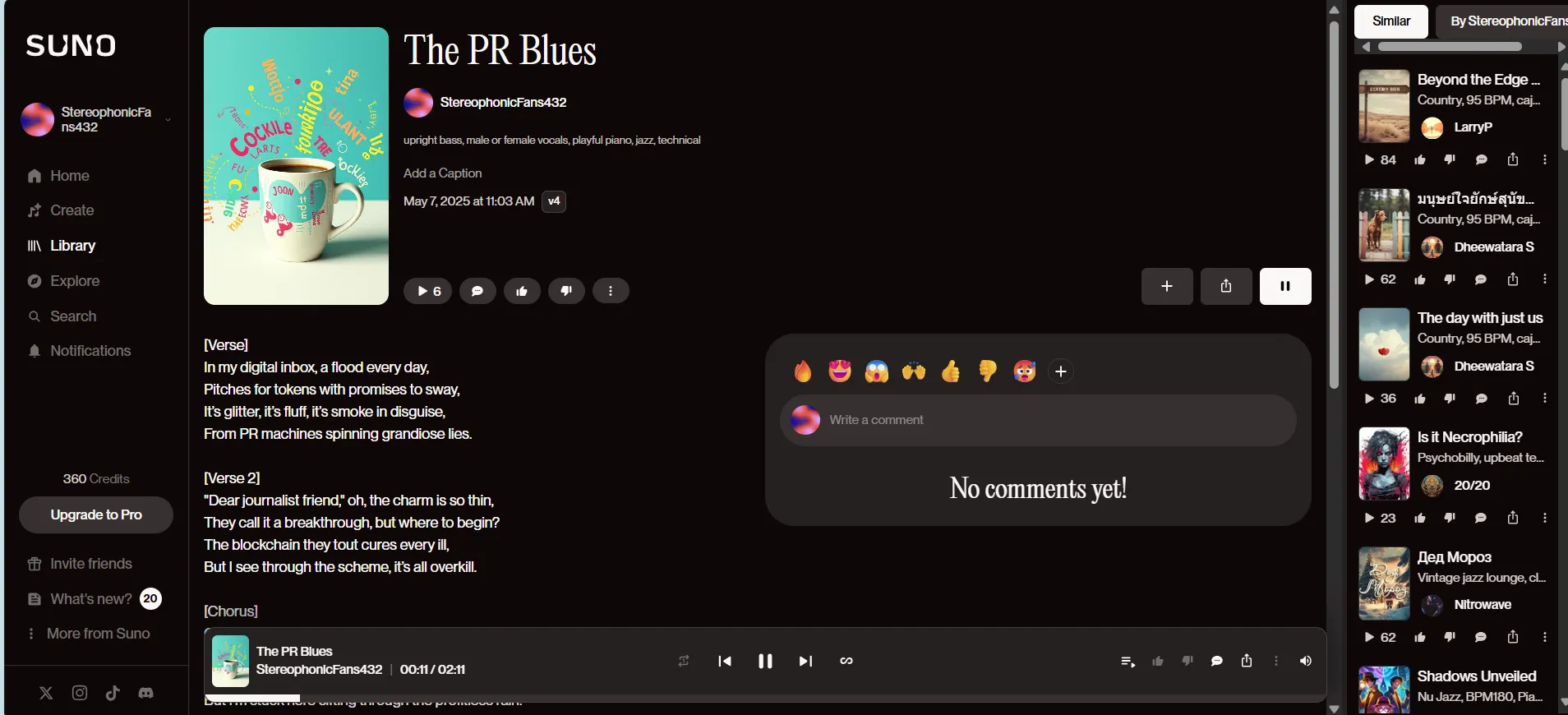
What it does: Suno is the go-to source for generating songs from simple text prompts. With just a few words describing what you want, this tool creates fully-realized songs, complete with vocals.
Paid plans unlock longer tracks, new models that generate more coherent songs with higher-quality audio, as well as tools that will automatically make your song longer. The premium tier also offers the ability to more precisely edit your track and change its lyrics, and provides commercial protection for your masterpiece.
Who it's for: Songwriters looking for instant inspiration, people who want to quickly create a full song from a concept, and musicians experimenting with AI-generated tracks as starting point. It's for people who want to create something nice and quick—without much effort.
Price: $8-$24 per month.
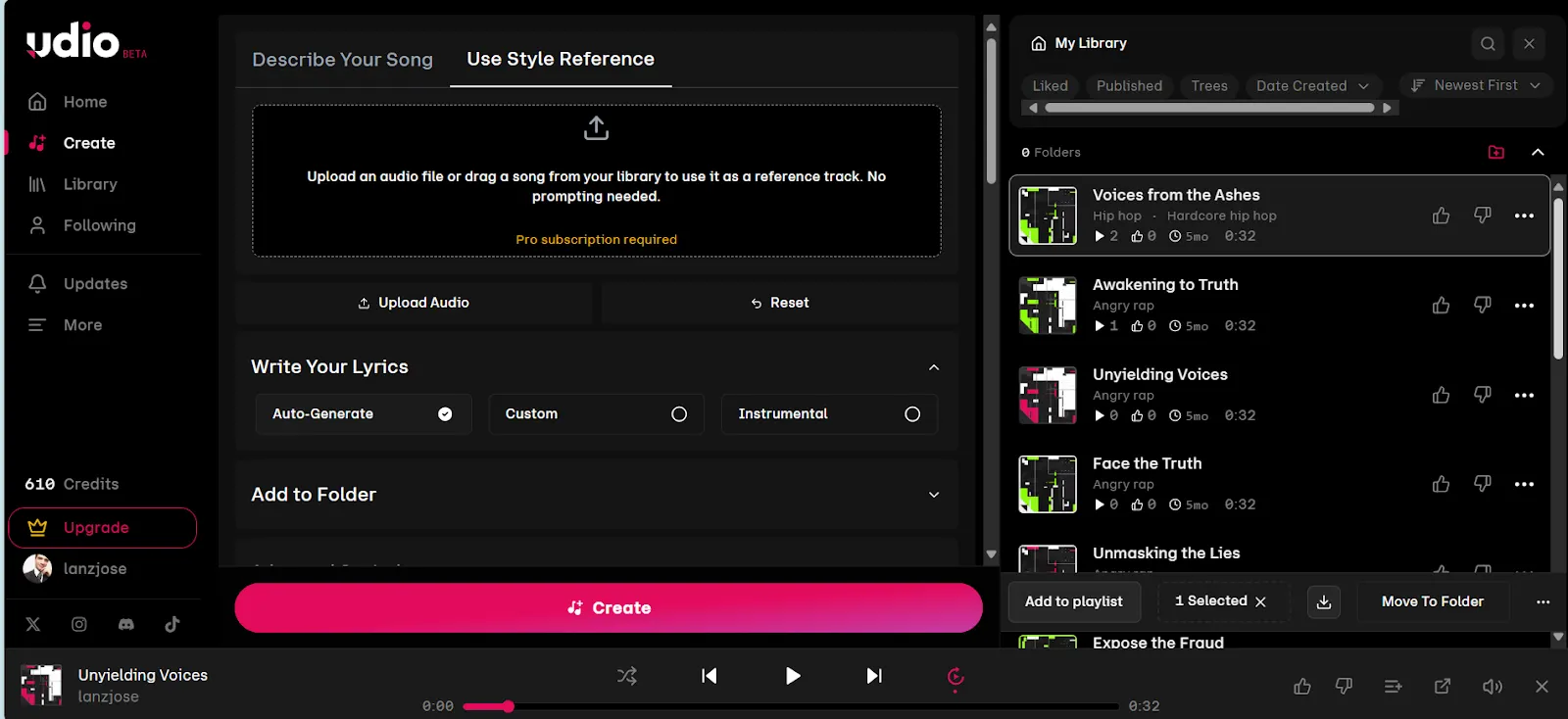
What it does: Created by ex-Google DeepMind researchers, Udio helps you convert text descriptions into high-quality tracks. It’s similar to Suno, but offers more advanced controls—such as "prompt strength," which lets you control how creative the model is; a “clarity slider”, which is basically a resonance suppressor, to reduce unwanted background noise; a negative prompt to avoid specific styles or elements in your generation; and a few other goodies.
Udio tends to produce consistently good quality outputs on specific genres like classical or jazz without risking too much in the way of hallucinations. Yes, AI music generators can hallucinate by creating random sounds or lyrics that make no sense. Here’s an example of a hallucination produced by Suno, for instance:
Who it's for: Musicians who want more control over AI-generated tracks, genre-specific creators (especially classical or jazz), people looking for higher-quality alternatives to Suno.
Price: $8-$24 per month.
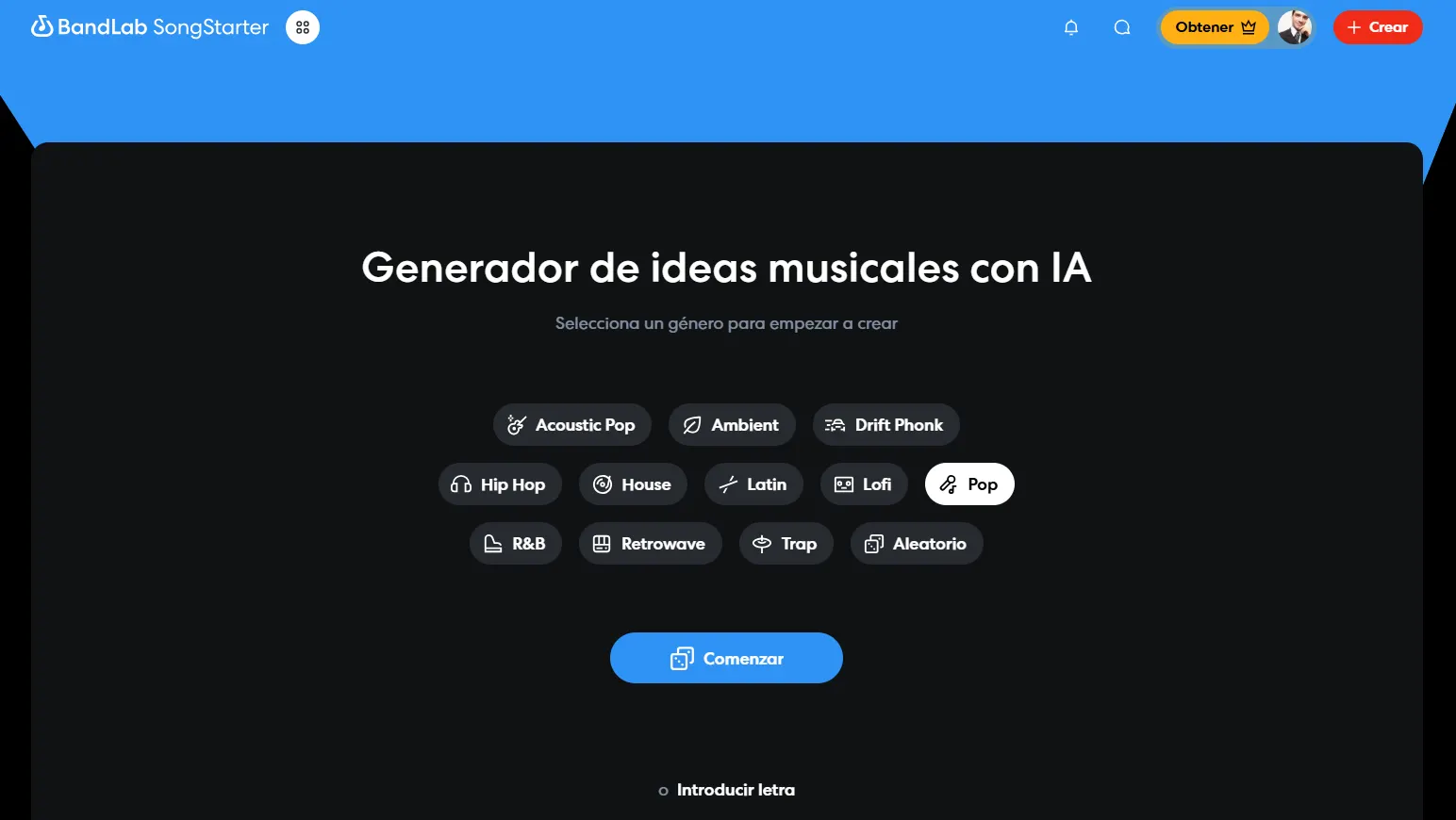
What it does: This tool also helps with inspiration, but it takes a different approach, using AI to generate music riffs based on genres, lyrics, or even emojis. It works like a music-making app on your phone and begins with musical "ideas," not full songs.
You start with simple riffs and small bits of songs, or lyrics. You can also check on other users' songs; the mix-and-match approach lets you combine different AI-generated elements, offering more creative control than Suno's all-at-once method.
Who it's for: Beginners who might feel overwhelmed by more complex tools, musicians who want to be the ones making the song instead of giving AI full control, and collaborative creators who want to see what others are doing.
Price: $99 annually.
Writing Lyrics
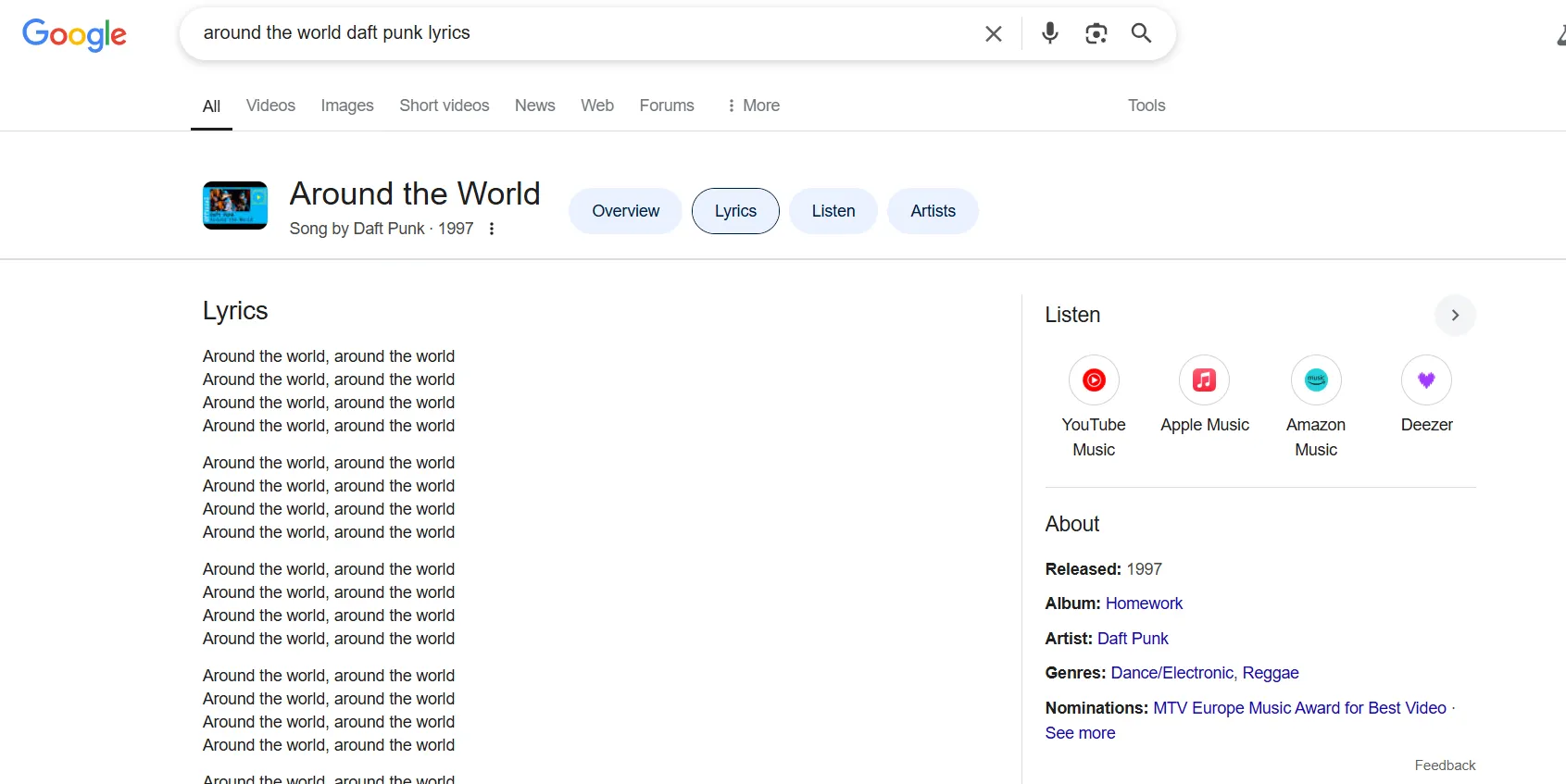
Snappy lyrics can make or break a song, and AI tools can help you find the right words.
What it does: For those who prefer familiar tools, I think Claude is the best AI chatbot for creative writing. Its lyrics are less robotic, and can be more meaningful and interesting. You can interact with it just as if you were co-writing a song with your pal. Talk in conversational language and it will understand.
But ChatGPT has its own style, and is very customizable with the GPT options and its custom instructions. You can configure your own GPT and it will fulfill a similar function as a Claude Project, heavily changing the output
Who it's for: Songwriters looking for more natural, meaningful lyrics, those who prefer a conversational approach to lyric writing using AI in an interactive way, musicians who want a co-writing partner.
Price: Starts at $20 per month
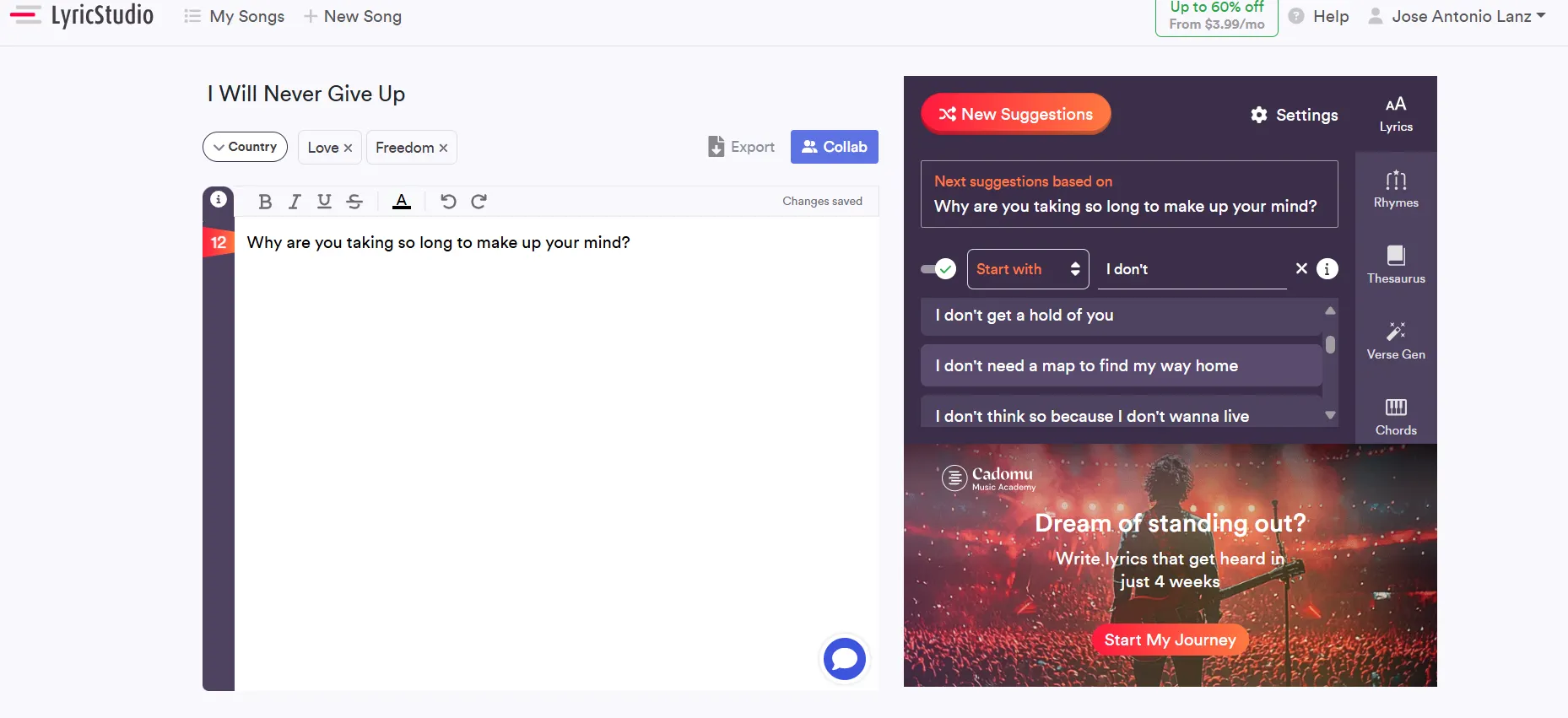
What it does: Offers real-time suggestions and customization options. As you write, it offers alternatives and rhymes that fit your chosen genre and mood.
Designed to work alongside you, helping refine your ideas rather than replacing them entirely. It's designed to suggest ideas. You can start writing something and it will analyze the metric, style and mood of your song, and give you inspiration during your process with suggestions for Starts verses, rhymes, ending phrases, etc. It even gives you chord suggestions.
Who it's for: Songwriters who want assistance rather than full automation, lyricists looking for suggestions to overcome writer's block, musicians who need help with both lyrics and chord structures.
Price: $3.99 to $9.99 per month
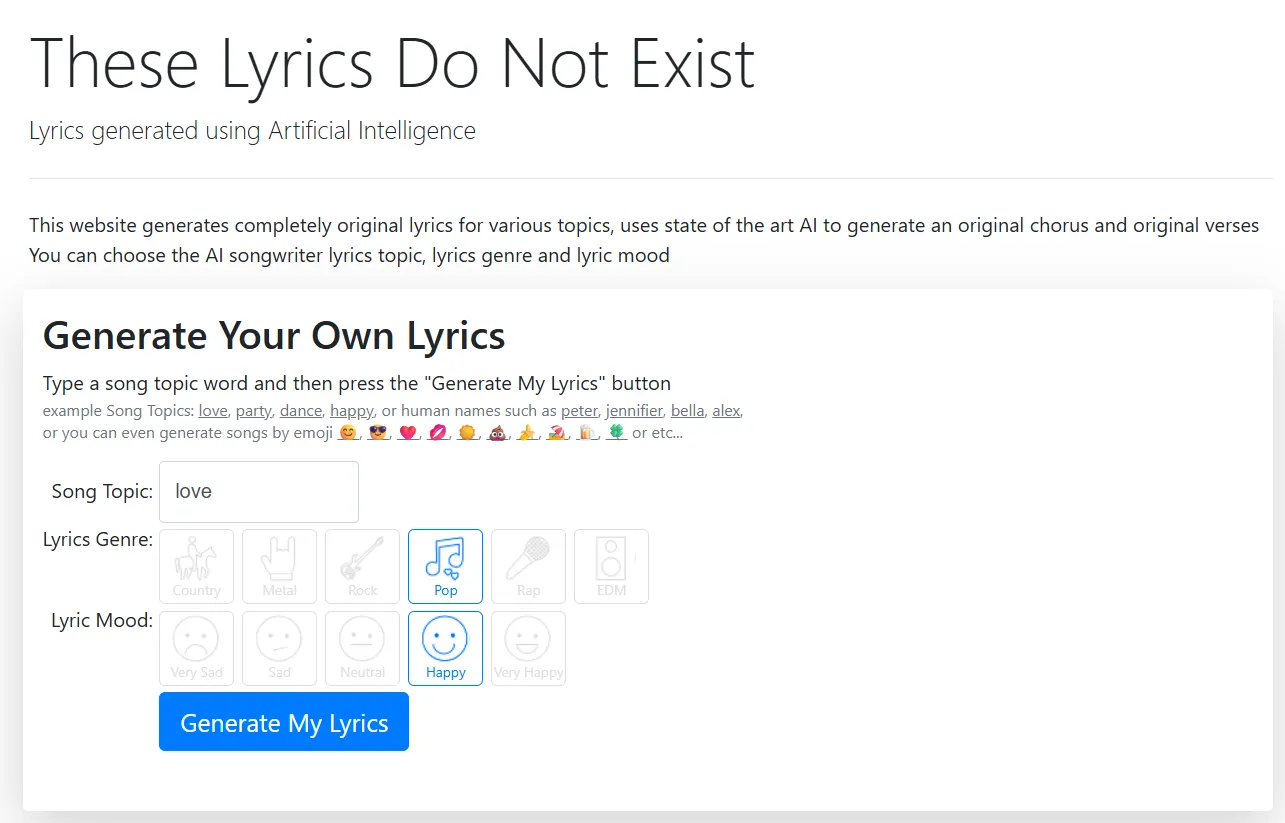
(Note to internet/AI history buffs: These Lyrics Do Not Exist and Jarvis Lyrics are relics of the good old days. Don’t take these too seriously, given the other options, but pour one out for when they revolutionized the internet.)
Creating Melodies and Harmonies
With your idea for a song and with lyrics in hand, the next step is creating melodic lines to bring your words to life. Here are some tools that can help you in this process.
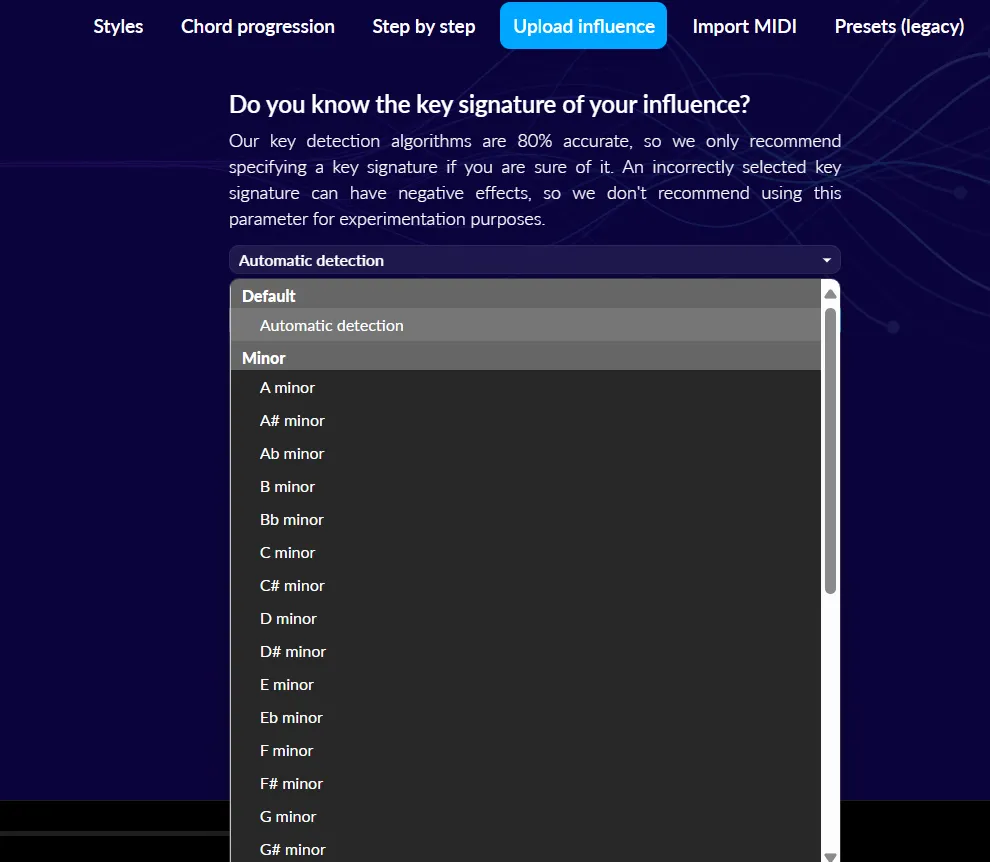
What it does: Specializes in generating tunes from lyrics, supporting genres from rock to gospel. The melodies are royalty-free, and you retain full copyright. The interface allows for editing and refinement.
If you suck at music theory and want to put a chord that doesn't fit the structure, this tool will let you know. This tool will give you a good MIDI base that will fit your style, chord progression, and lyrics. You can even use its outputs as inputs for other platforms that are compatible with MIDI, creating a personalized workflow.
Who it's for: Songwriters with lyrics but no melody, musicians struggling with music theory, creators looking for MIDI files they can further customize.
Price: $10.99 monthly or $107.88 annually
What it does: AIVA is an OG in the field of AI music production, being around since 2019. It approaches composition from a different angle, letting you select mood and instruments to create original tracks. It's been featured in TED Talks and offers a free tier for non-commercial use. The tool is particularly useful for instrumental sections, creating emotional soundtracks that can complement vocal parts generated elsewhere.
Who it's for: Composers looking for instrumental tracks, film scorers, musicians needing background music for vocals, creators seeking mood-based compositions, early adopters who are already used to the tool.
Price: Starts at 11 euros per month.
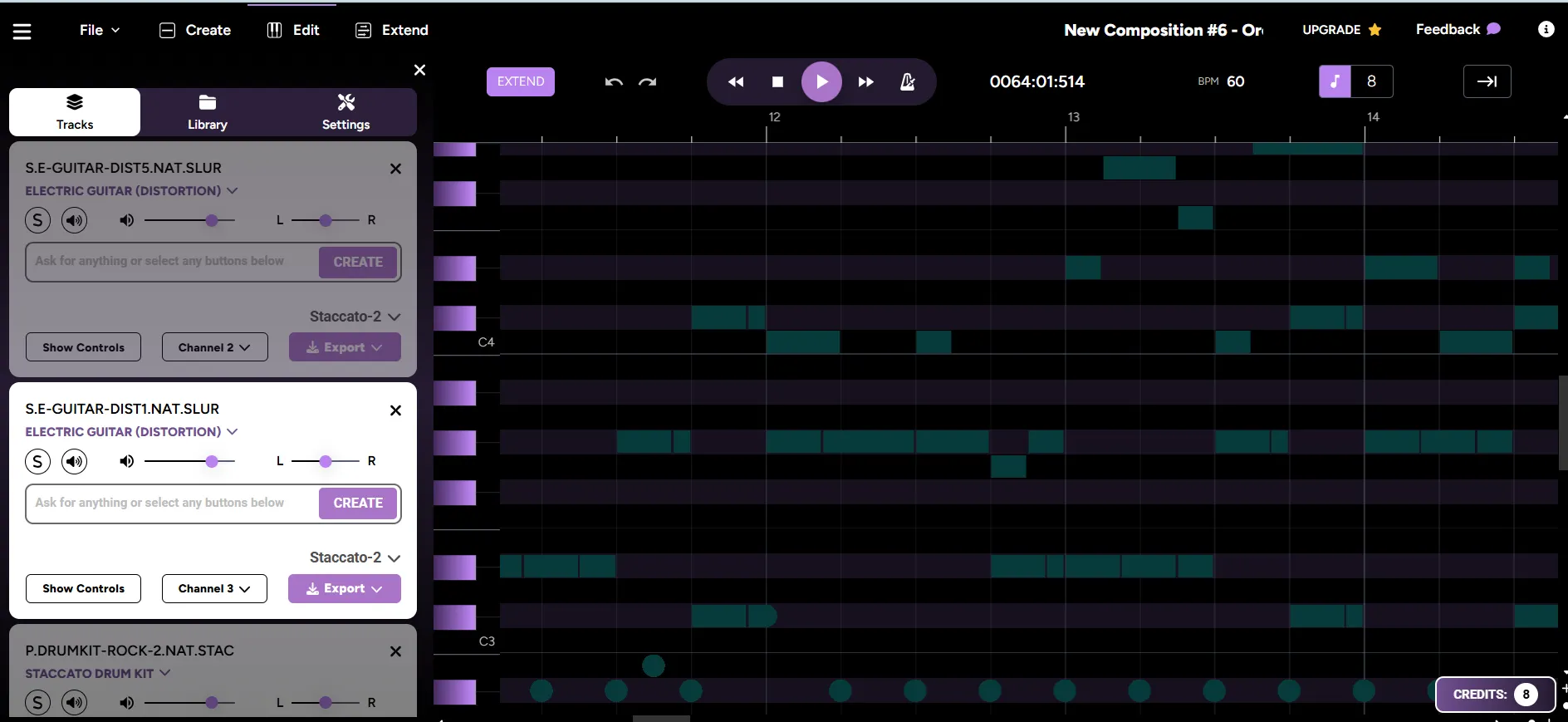
What it does: Offers more flexibility for musicians who already know their way around music software. Beyond just generating MIDI, it can extend your musical ideas, suggest variations, or change the mood of existing compositions. Staccato's strength lies in working with your input rather than creating from scratch—a true collaboration between human and machine maestro.
It also has a song analyzer to let you know if your lyrics actually convey the message you want to send, offering tips on how to improve your song.
Who it's for: Musicians who already play instruments, composers looking to extend their ideas, songwriters wanting feedback on their lyrical messaging.
Price: Starts at $6.49
The Best AI Music Tools for Practice and Jamming
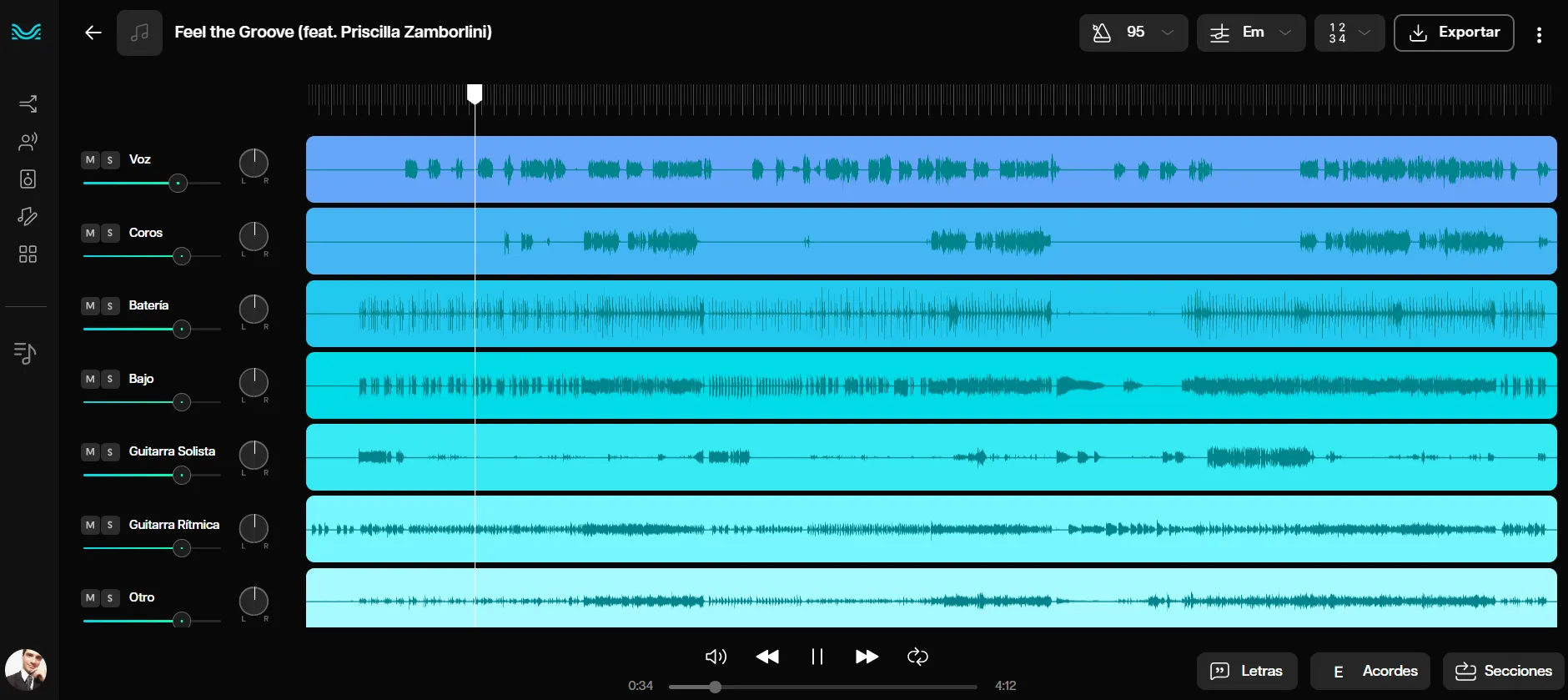
What it does: Upload an MP3 of any song and Moises will separate tracks into "stems" (individual instrumentals and vocal parts), letting you isolate what you need. It’ll also break down the chords that the song uses, a la Chordify.
Beyond just separation, Moises also transcribes melodies, and provides tempo and key control.
If you went the Suno route and generated a full song—or if you have a full song and want to isolate a single instrument, or create a backing track out of it—this tool will do the job and will be very helpful if you plan to play that song live with your band.
Who it's for: Musicians practicing with existing songs, remixers, bands wanting to learn or perform AI-generated tracks, people looking to isolate specific parts of songs.
Price: Starts at around $1 per month, region-based
StemRoller
What it does: Performs similar functions to Moises with a simpler interface, separating vocals and instrumentals with a single click. While it lacks some of Moises' precision, it's a no-cost, open-source option for basic separation needs.
Who it's for: Budget-conscious musicians, casual users needing simple track separation, open-source enthusiasts.
Link: StemRoller or https://github.com/stemrollerapp/stemroller/
Price: Free. The app is open source, so the code has been reviewed by thousands of independent developers and is auditable, so it’s apparently safe to download and install. If you’re worried, download it from the Github site.
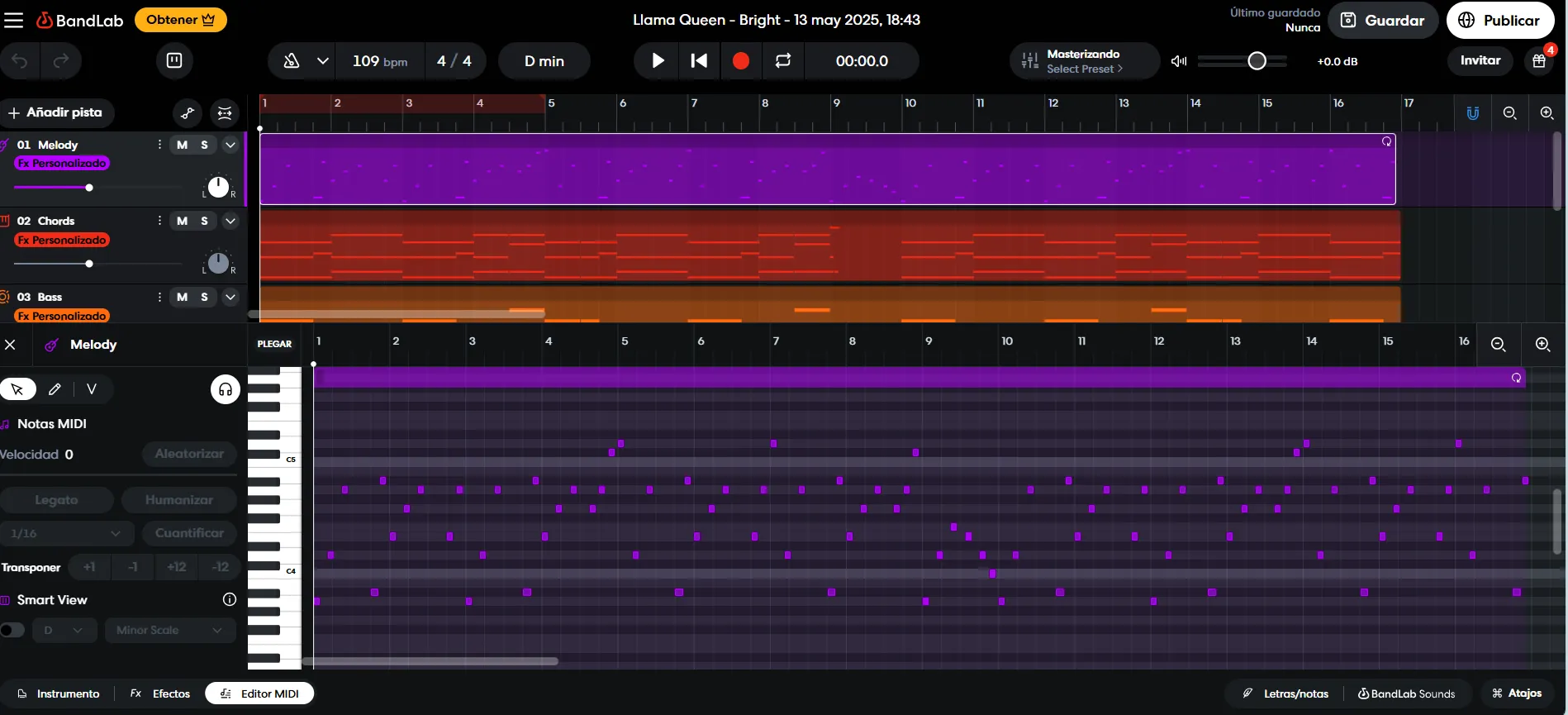
What it does: Offers a full-featured online DAW with integrated AI tools. What makes it stand out is its community features—you can collaborate with other musicians remotely, access sound libraries, and use AI to extend your compositions.
Its SongStarter feature generates track ideas from simple prompts like genres or emojis, giving you a foundation to build upon. It's a great middle ground between fully AI-powered platforms like Suno and time-proven music editors like FL Studio.
Who it's for: Collaborative musicians, producers wanting a free DAW with AI features, beginners learning production skills, social music creators.
Price: Starts at $99 per year
Musical Arrangement
Arrangement turns basic compositions into fully realized songs by determining how different elements work together. If this is what you need, check out some of these tools.
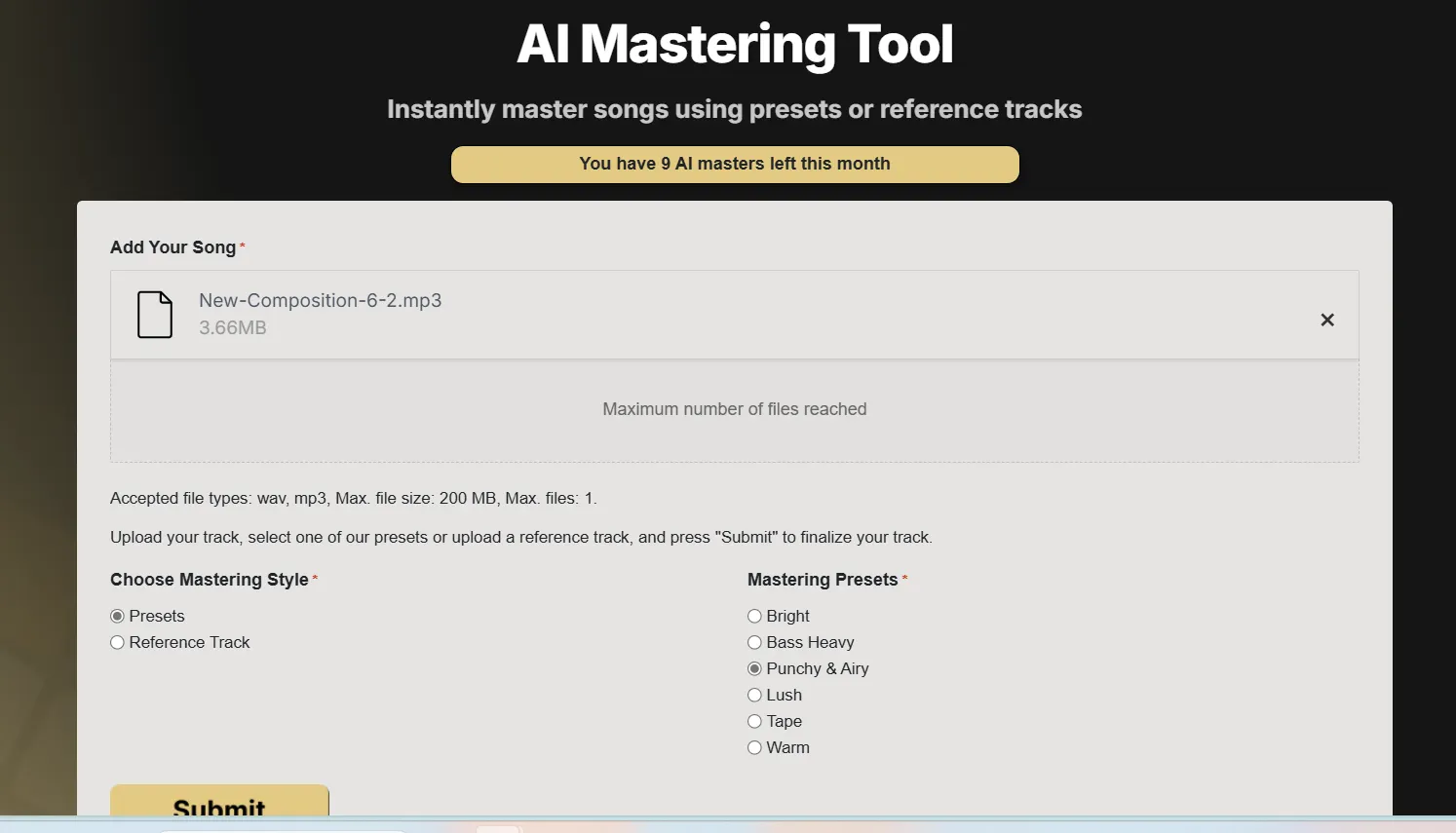
What it does: Brings unique capabilities to the arrangement process, allowing you to transform vocal recordings into instruments for creative arrangements. It also features a wide set of tools that leverage AI to one-click your way through the music production stage.
RecordLabel will improve your recordings with little effort, making them brighter, bassier, cleaner, and overall better in quality, based on your needs.
Who it's for: Producers looking to transform vocal recordings, musicians wanting quick production enhancement, creators seeking creative arrangement tools, people who need editing but lack the expertise.
Price: Starts at $19/month billed annually
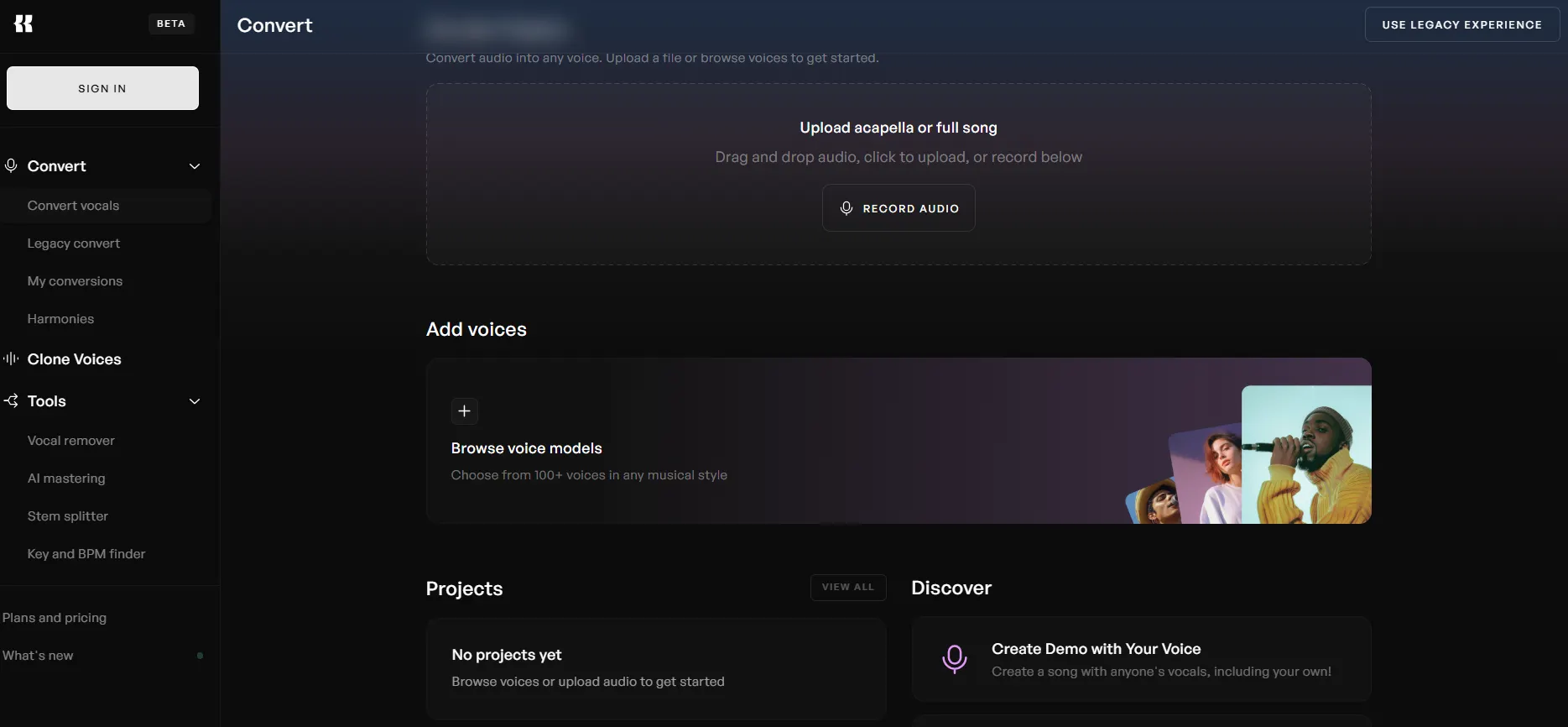
What it does: A good tool for producers experimenting with instrumentation, such as turning a hummed melody into a guitar riff or orchestral string section. It offers a complete suite of tools that will make your creative process more enjoyable.
It can help you clone voices, split songs into stems to practice each instrument, find the key and BPM of any reference, use AI to master your demos and much more.
Who it's for: Experimental producers, musicians wanting to transform melodies between instruments, technical creators who can navigate complex UIs.
Premium: Starts at $9.59
Production and Mastering
The final step—making your song sound professional—has traditionally required expensive studio time. These are some AI tools that are trying to change that equation.
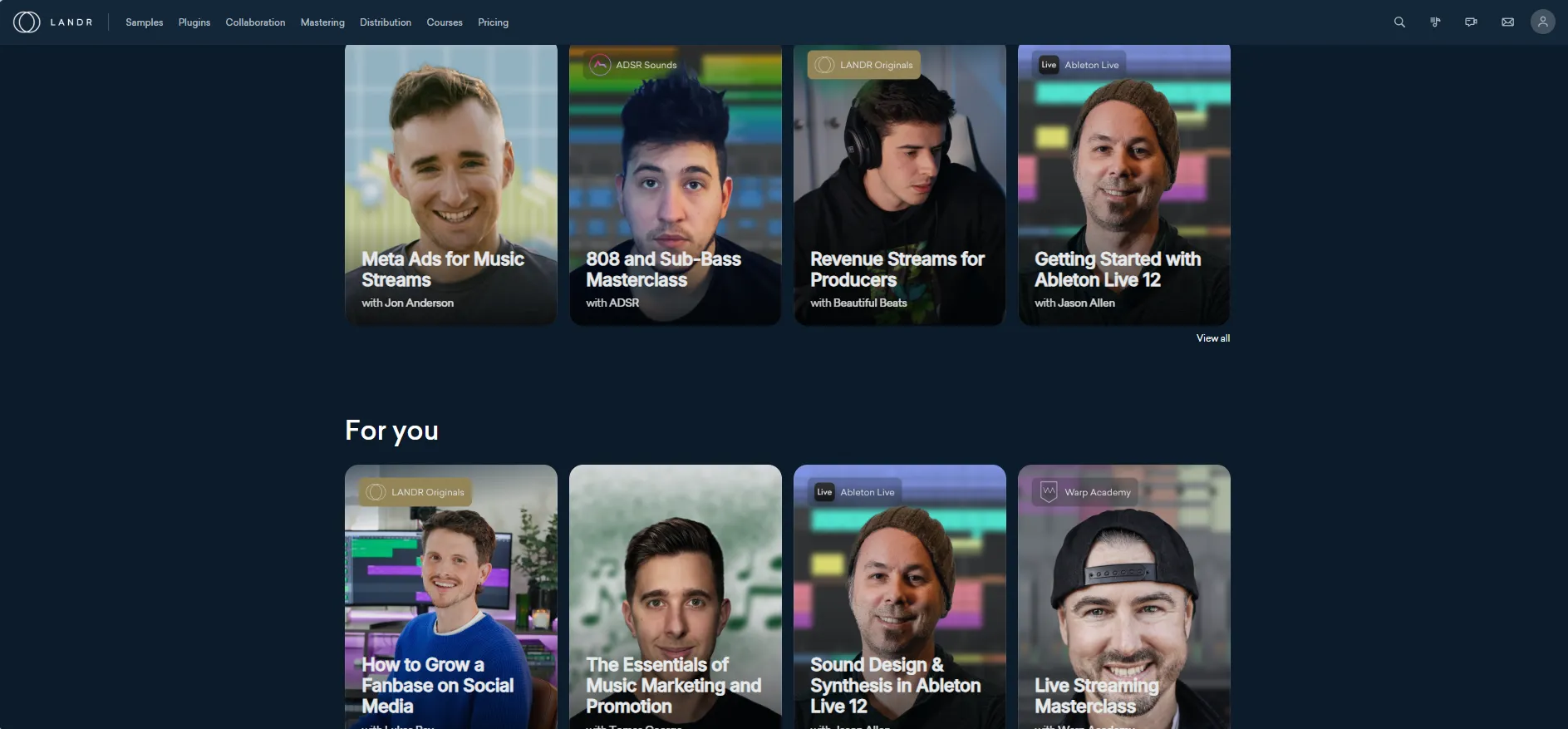
What it does: Offers an end-to-end solution for mastering. This one is huge and provides a lot of tools for musicians and AI enthusiasts—from a complete AI mastering suite to a social media platform that lets you connect with other creators and sell your products.
The AI mastering engine claims to have been trained by Grammy-winning producers and offers unlimited revisions. Beyond mastering, it includes distribution to over 150 streaming platforms and access to millions of royalty-free samples.
Who it's for: Independent musicians seeking professional mastering, creators wanting distribution options, producers looking for royalty-free samples, musicians eager to learn through the platform's courses.
Price: Starts at around $4 per month (region based)
What it does: This program provides more granular control for those comfortable with audio engineering concepts. Its AI-powered features include vocal balance assistance and stem focus, allowing precise adjustments to specific elements of your mix.
This one is not really the best option for amateurs that want to make songs for fun, but is worth mentioning because it's a very complete tool.
Who it's for: Advanced audio engineers, professional producers, technical musicians with audio engineering knowledge.
Price: $49 - $399 per license
Generally Intelligent Newsletter
A weekly AI journey narrated by Gen, a generative AI model.

 6 months ago
49
6 months ago
49









 English (US) ·
English (US) ·